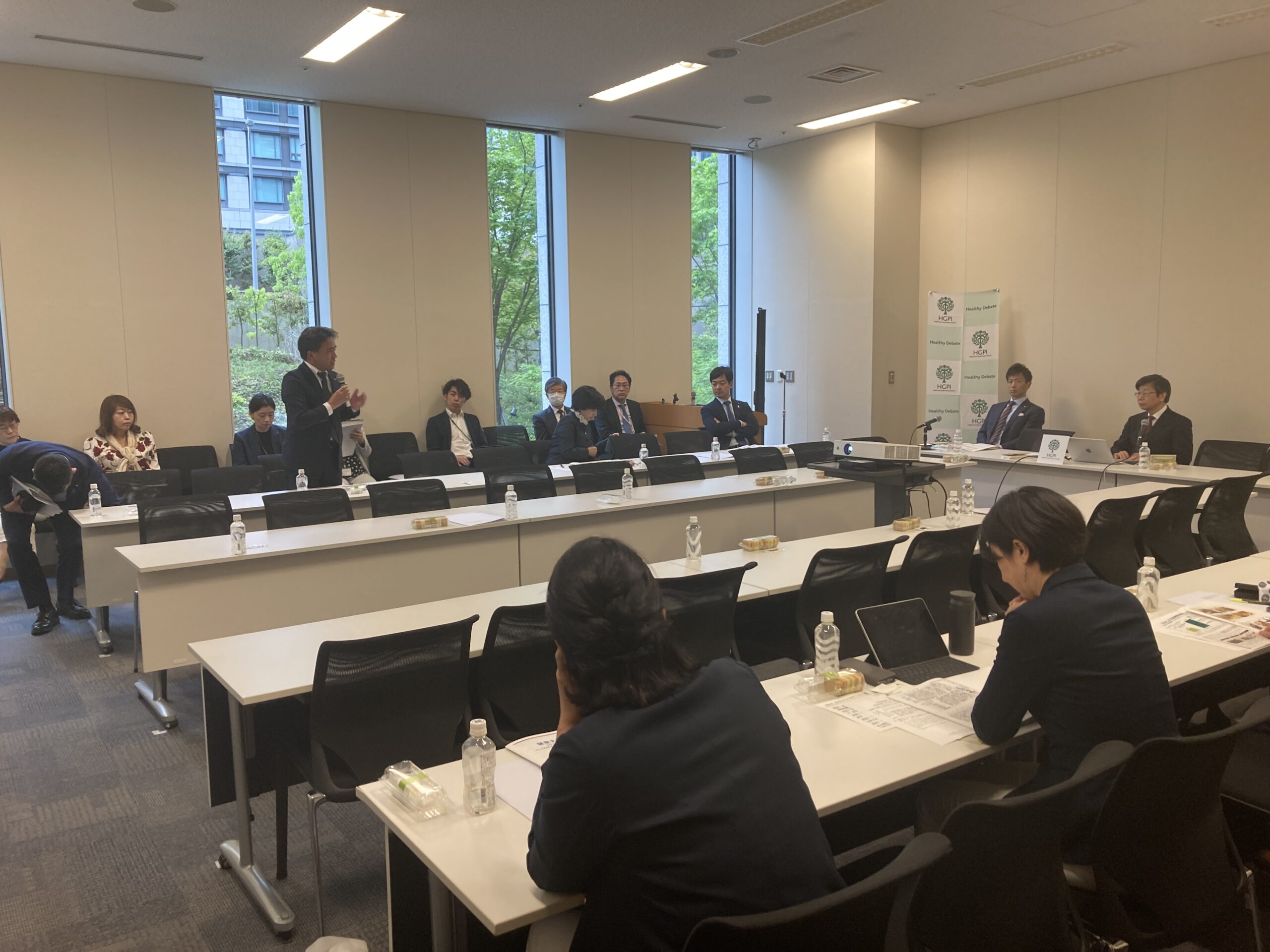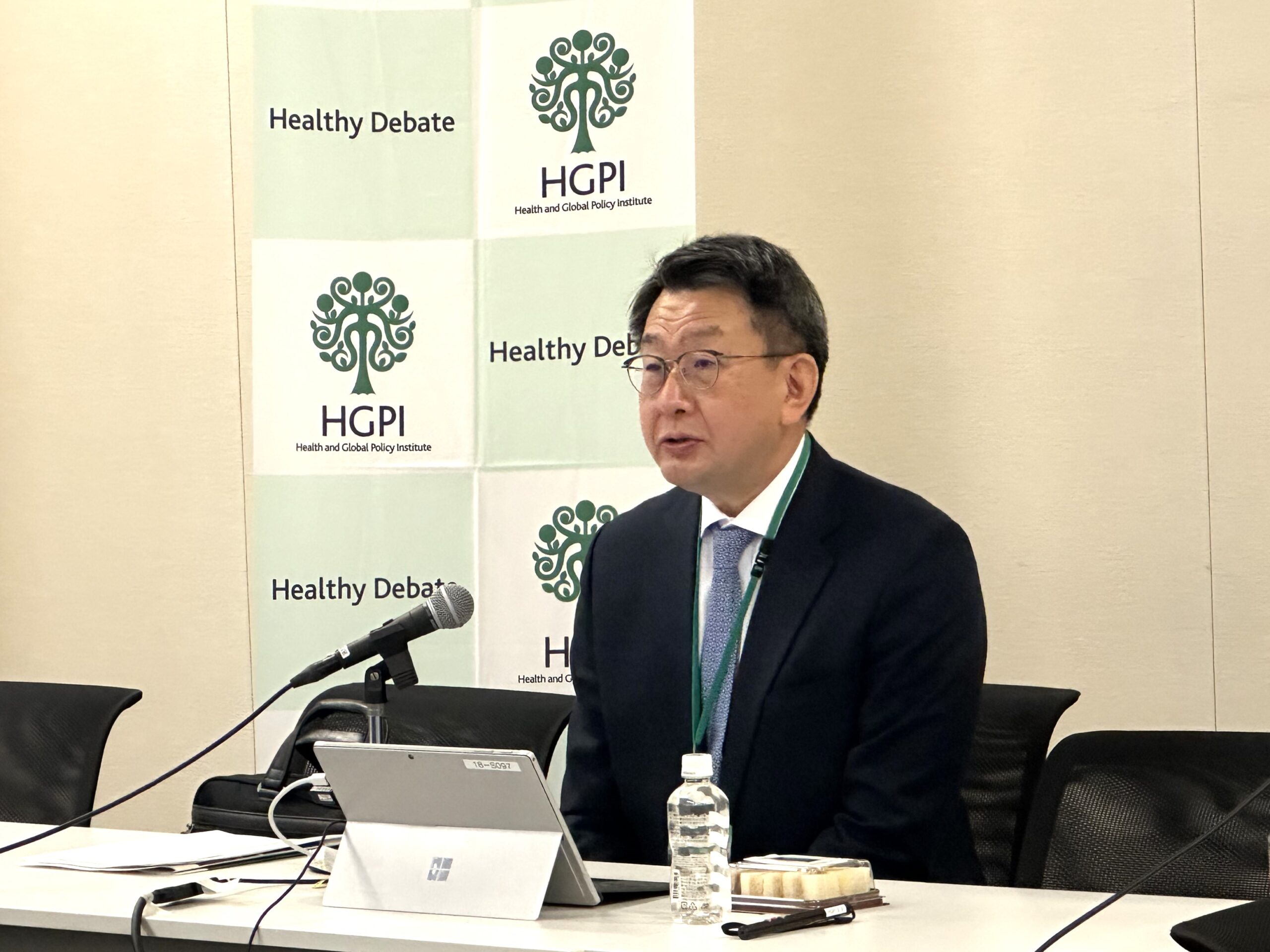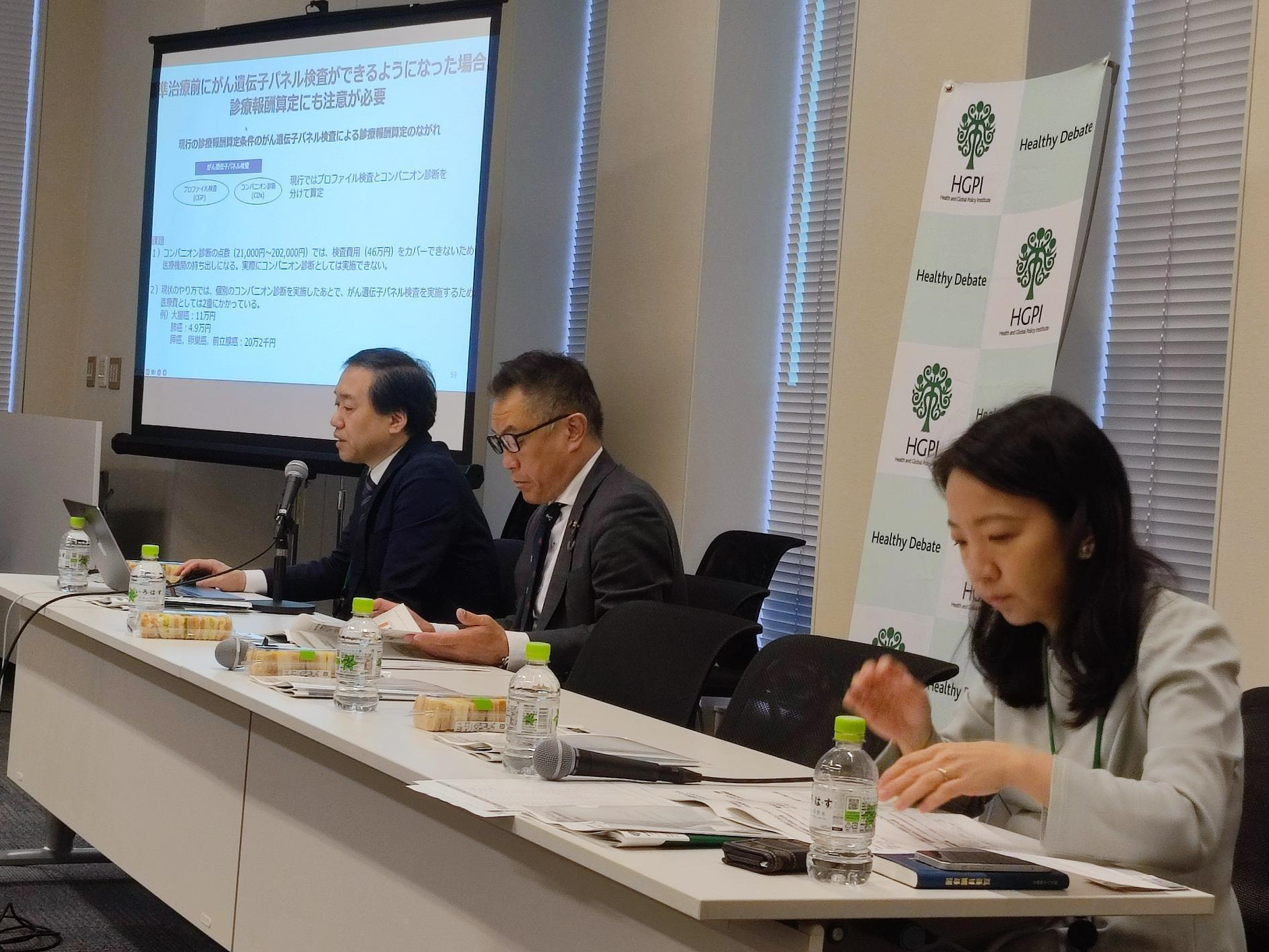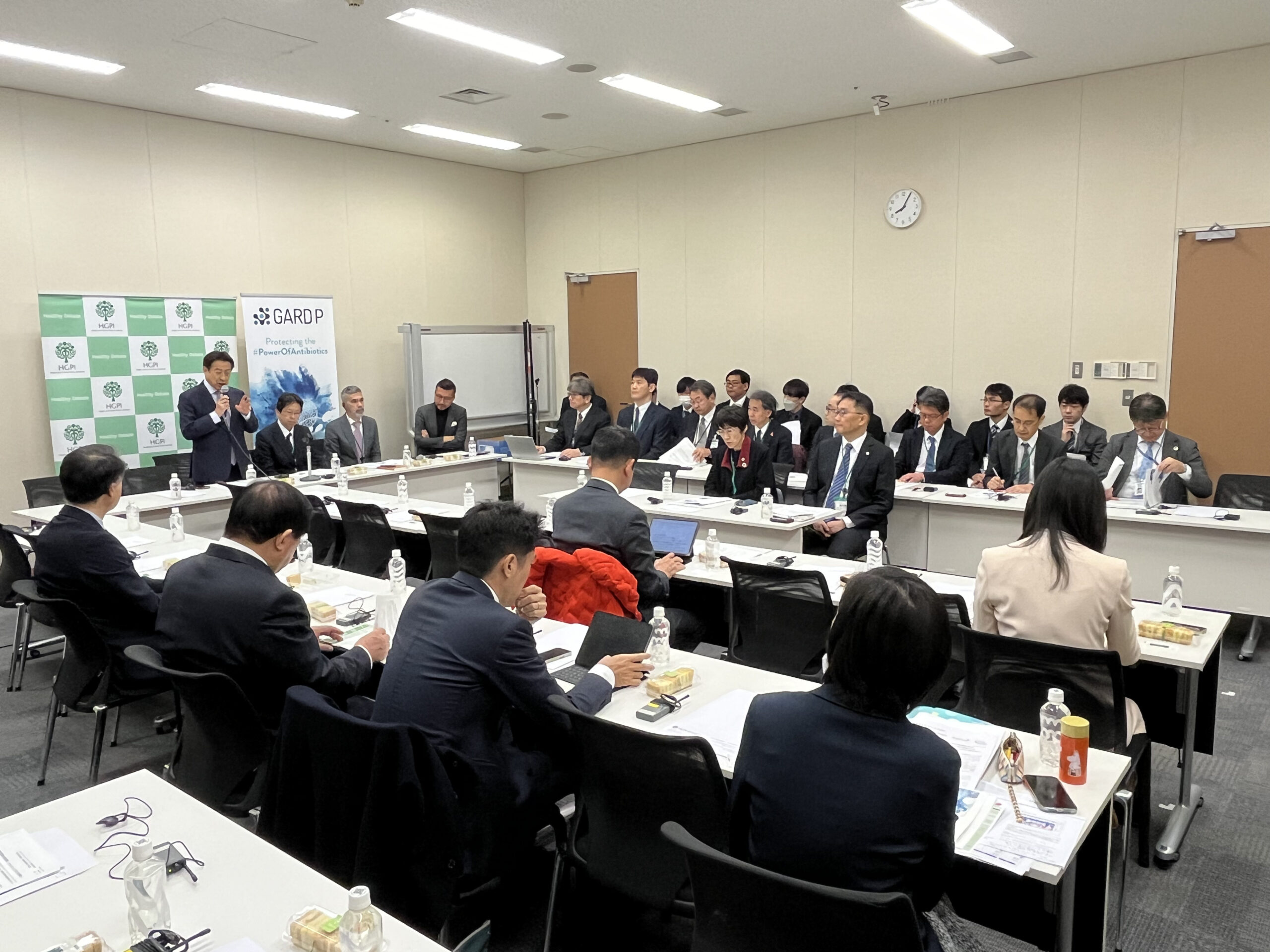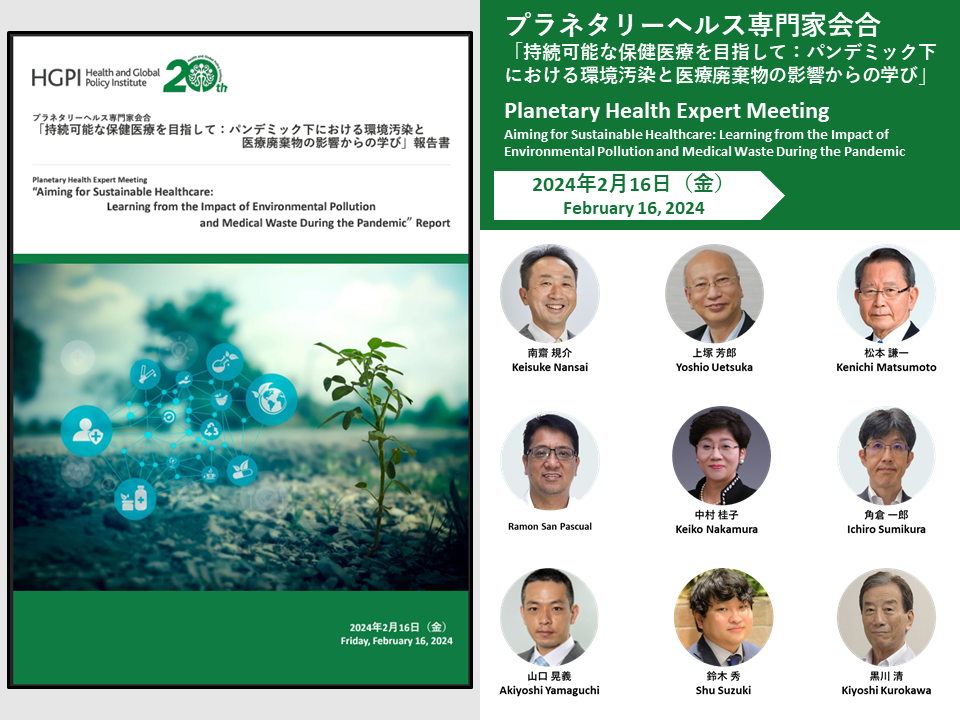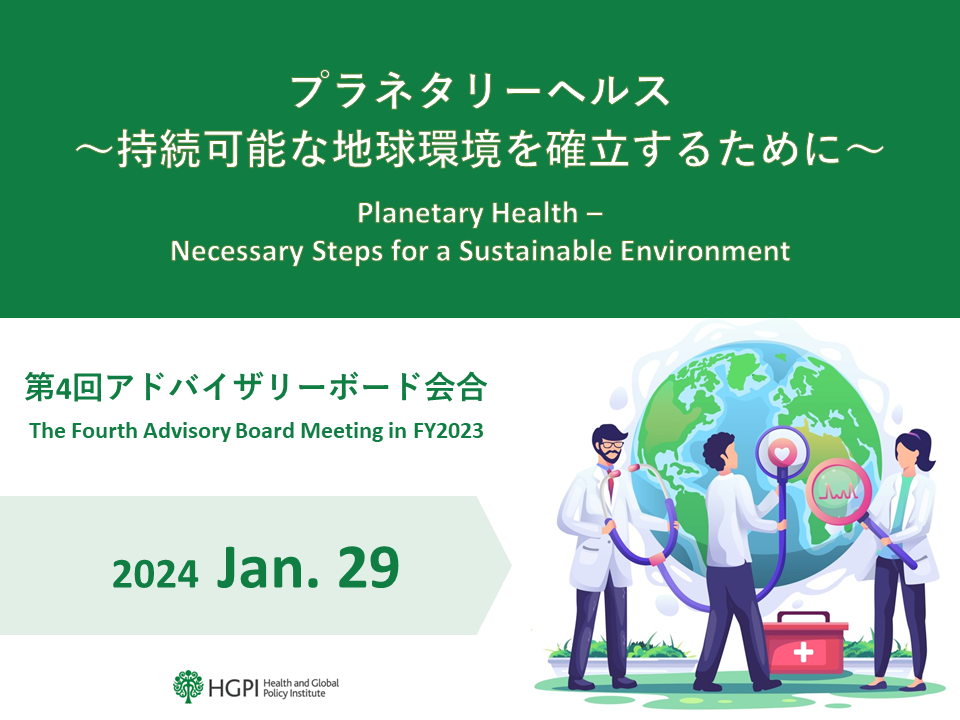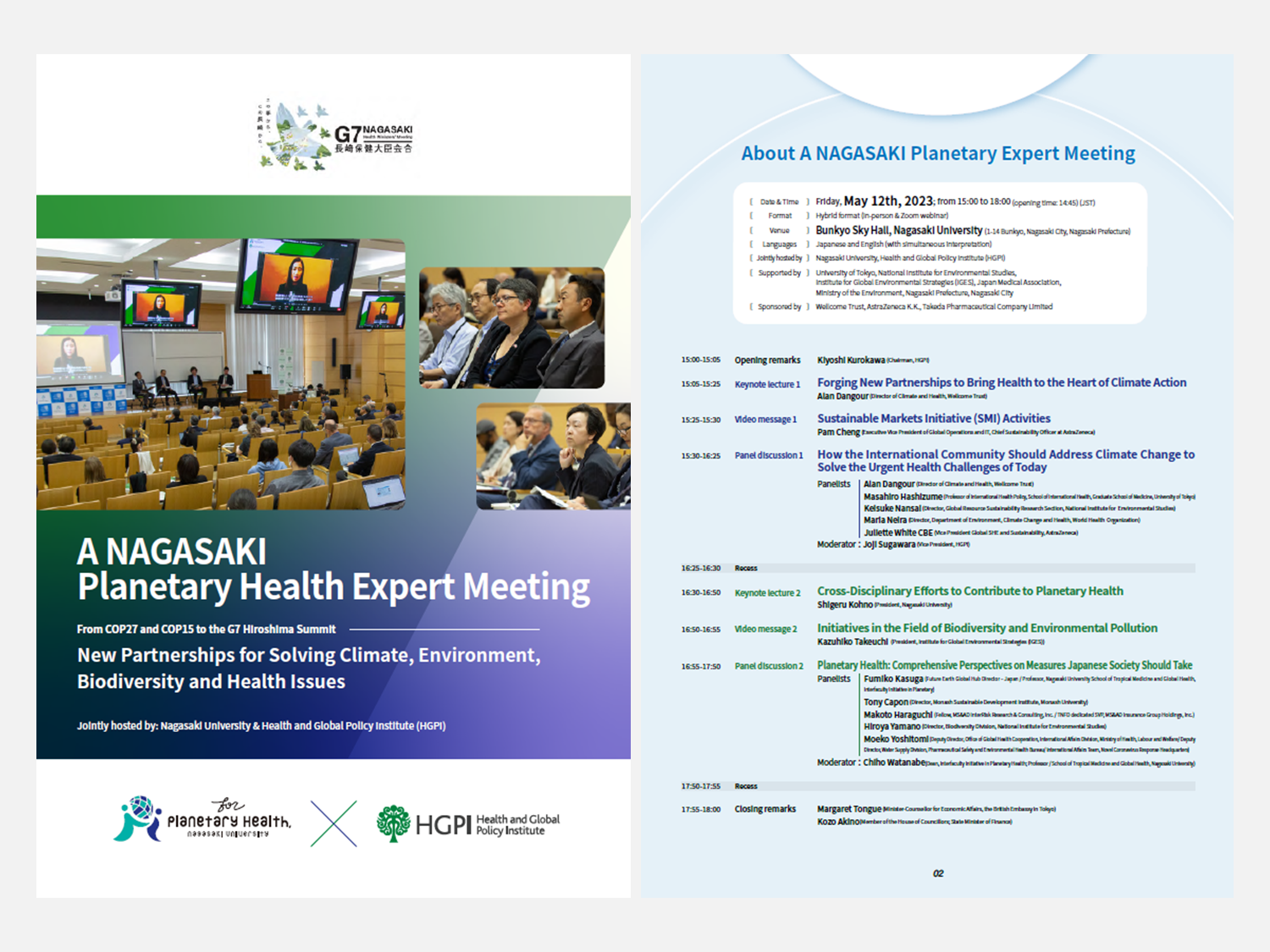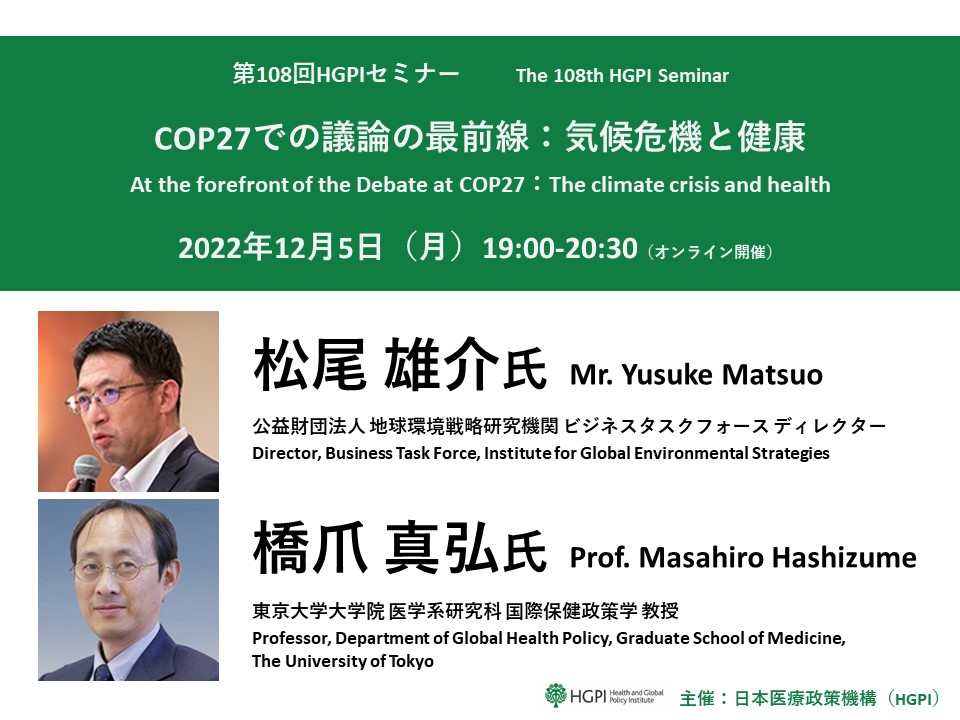[Event Report] Non-partisan Diet Member Briefing – 30-minute Health Policy Update: “Integrating Climate Change Measures and Health Promotion Measures: The Need to Formulate a National Strategy for Climate Change and Health” (May 16, 2024)
date : 6/6/2024
![[Event Report] Non-partisan Diet Member Briefing – 30-minute Health Policy Update: “Integrating Climate Change Measures and Health Promotion Measures: The Need to Formulate a National Strategy for Climate Change and Health” (May 16, 2024)](https://hgpi.org/en/wp-content/uploads/sites/2/HGPI_240516_dmbpheyecatch.jpg)
Health and Global Policy Institute (HGPI) held an installment of 30-minute Health Policy Update, a series of briefings for Diet members on key health policy issues. This installment was titled, “Integrating Climate Change Measures and Health Promotion Measures: The Need to Formulate a National Strategy for Climate Change and Health”.
This briefing featured a lecture from Masahiro Hashizume, Professor of Global Health Policy at the Graduate School of Medicine, University of Tokyo, and Keisuke Nansai, Director of Material Cycles Division, National Institute for Environmental Studies (NIES), on the policy challenges and necessary efforts in formulating and implementing a “National Strategy for Climate Change and Health” by integrating existing climate change measures and health promotion measures in Japan.
Sharing many questions and insights, Diet Members took the opportunity to engage in a robust exchange of opinions during the Q&A session following the lecture.
■Key Points
Health Impacts of Climate Change
- Due to the effects of climate change, the number of emergency transports due to heat stroke is expected to reach 1.7 times (compared to 1981-2000) by the middle of this century, even if strict measures against global warming are implemented. In addition, deaths due to heat stress are expected to increase 2.4 times by the middle of this century.
- There are concerns about the potential risk of infectious diseases (such as dengue fever) spreading, non-communicable diseases (NCDs), and the impact on mental health. For example, with regard to NCDs, patients with obesity and diabetes are more vulnerable to heat.
Decarbonization of the healthcare sector
- Greenhouse gas (GHG) emissions (approximately 73 million tons of CO2 equivalent in 2015) have not changed significantly in the supply chain of healthcare services in Japan, but their ratio to Japan’s total GHG emissions rose to about 6% in 2020.
- In addition, healthcare services have many emissions other than on-site emissions and electricity consumption, so decarbonization cannot be achieved by on-site actions and the introduction of renewable energy alone.
- If Japan is to achieve a carbon-neutral society by 2050, the GHG emissions (carbon footprint) of healthcare services as a whole must be reduced to net zero. With only 26 years left, it is essential to have a clear decarbonization roadmap for healthcare services, promotion and support measures, and progress monitoring, as in the UK and Australia.
[Program] (titles omitted)
Explanation of the purpose and introduction of policy recommendations
Joji Sugawara (Vice President, Health and Global Policy Institute)
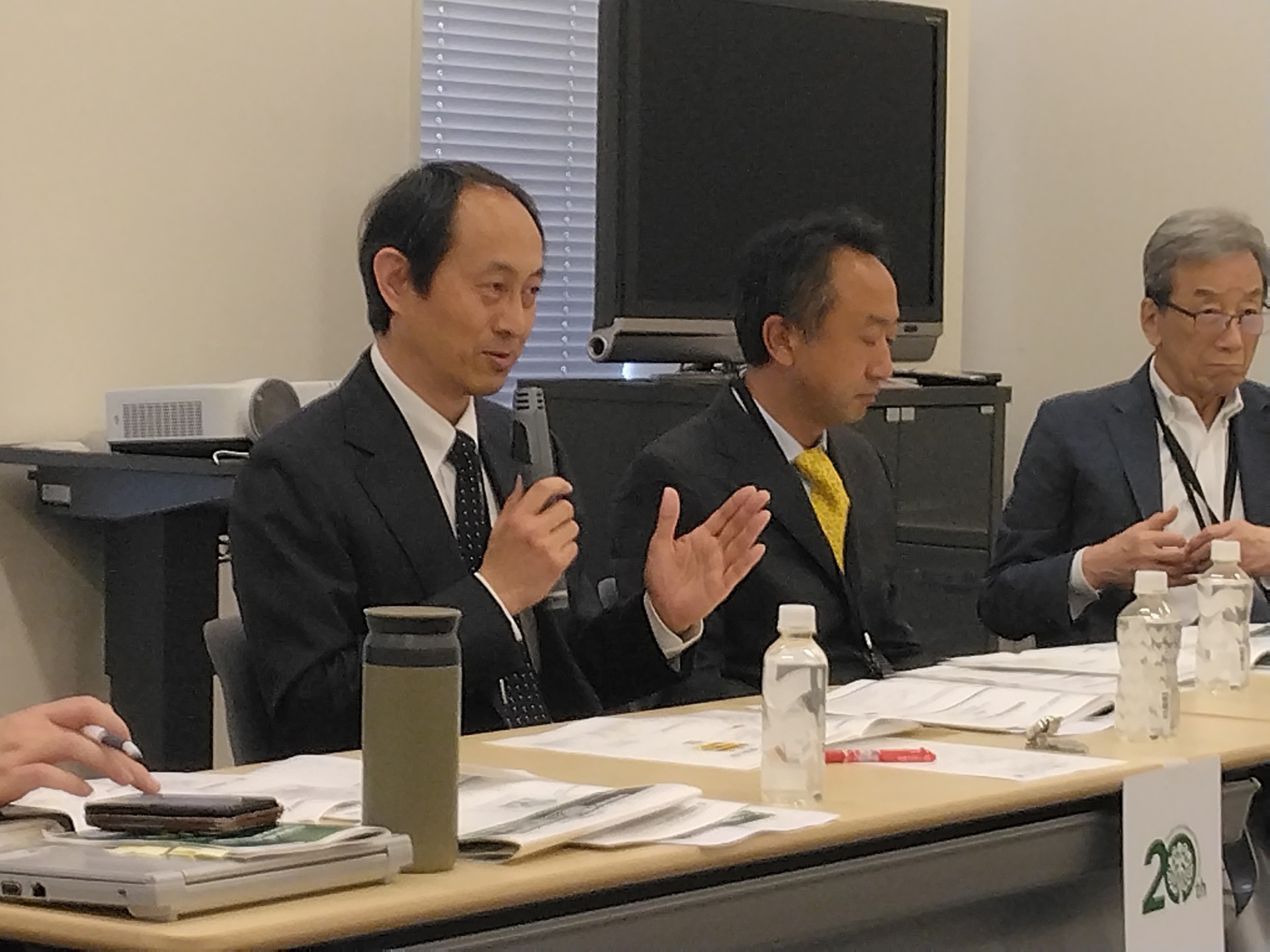 Lecture on “Health Impacts of Climate Change”
Lecture on “Health Impacts of Climate Change”
Masahiro Hashizume (Professor, Department of Global Health Policy, Graduate School of Medicine, The University of Tokyo)
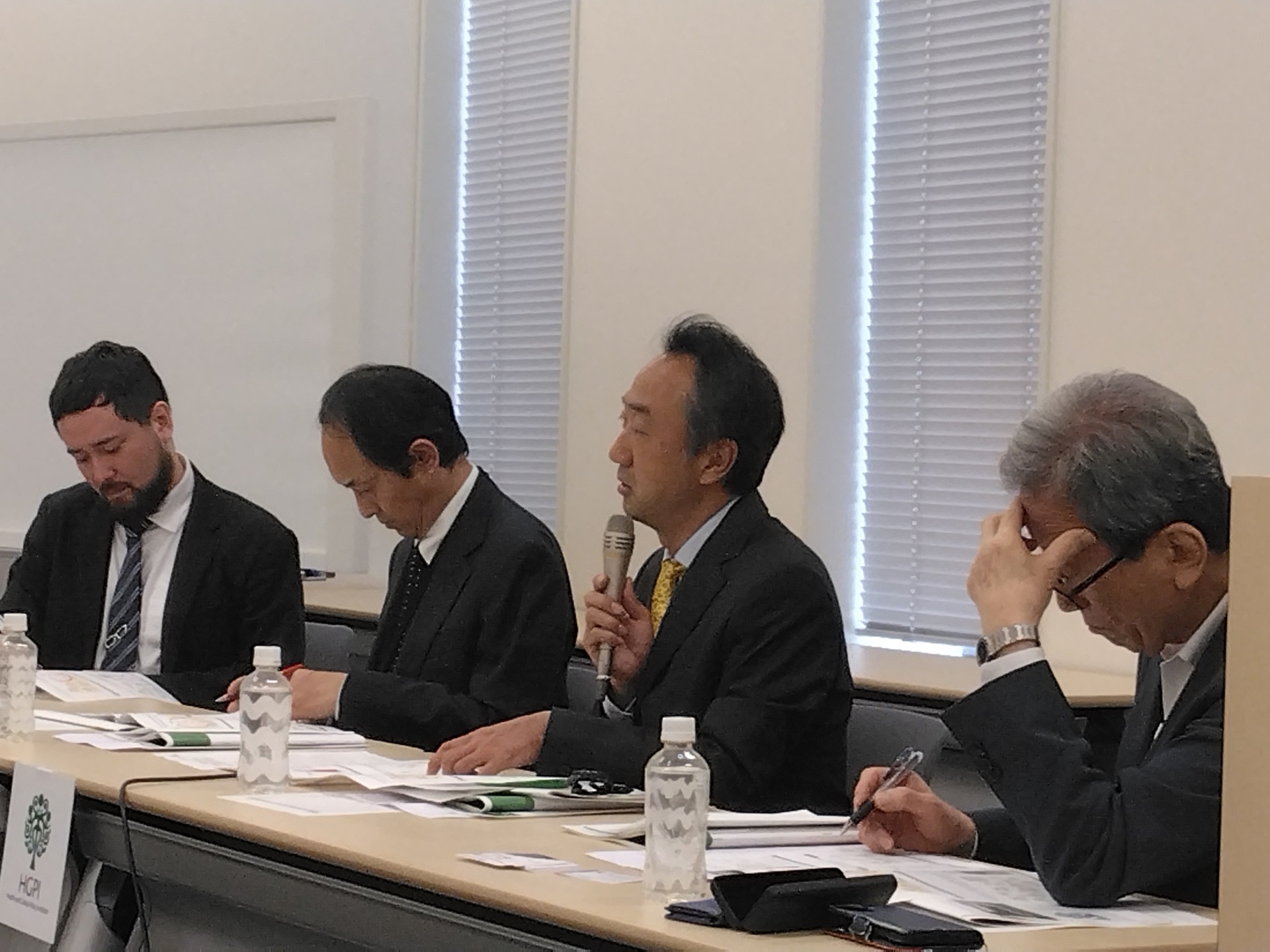 Lecture on “Decarbonization of the Health and Medical Sector”
Lecture on “Decarbonization of the Health and Medical Sector”
Keisuke Nansai (Director of Material Cycles Division, National Institute for Environmental Studies (NIES))
Question and answer session
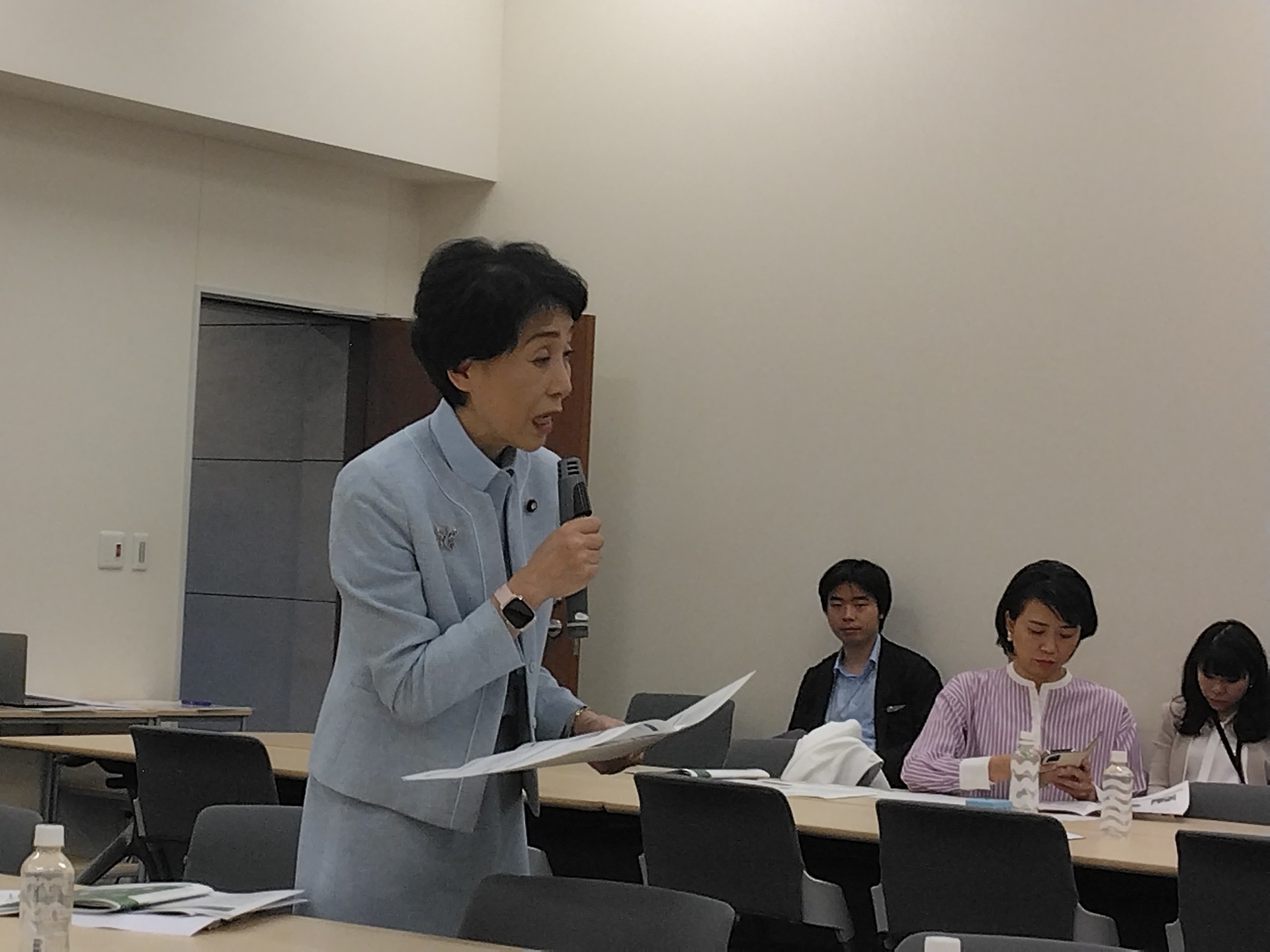
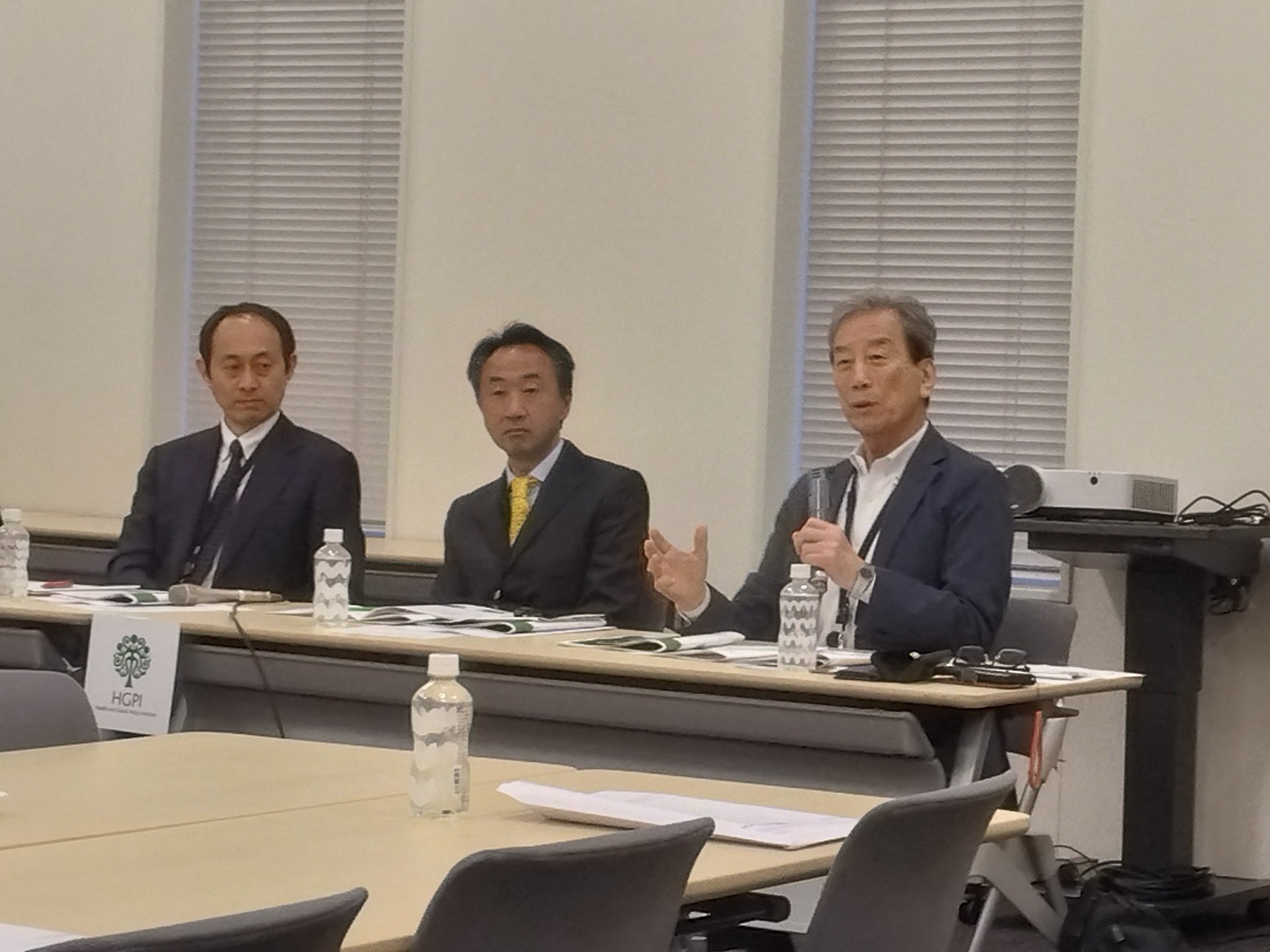
Top Research & Recommendations Posts
- [Policy Recommendations] The Path to a Sustainable Healthcare System: Three Key Objectives for Public Deliberation (January 22, 2026)
- [Research Report] The 2025 Public Opinion Survey on Healthcare in Japan (March 17, 2025)
- [Research Report] Perceptions, Knowledge, Actions and Perspectives of Healthcare Organizations in Japan in Relation to Climate Change and Health: A Cross-Sectional Study (November 13, 2025)
- [Policy Recommendations] Reshaping Japan’s Immunization Policy for Life Course Coverage and Vaccine Equity: Challenges and Prospects for an Era of Prevention and Health Promotion (April 25, 2025)
- [Research Report] The 2023 Public Opinion Survey on Satisfaction in Healthcare in Japan and Healthcare Applications of Generative AI (January 11, 2024)
- [Research Report] AMR Policy Update #4: Cancer Care and AMR (Part 1)
- [Public Comment Submission] “Assessment Report on Climate Change Impacts in Japan (Draft Overview)” (December 24, 2025)
- [Policy Recommendations] Developing a National Health and Climate Strategy for Japan (June 26, 2024)
- [Research Report] The Public Opinion Survey on Child-Rearing in Modern Japan (Final Report) (March 4, 2022)
- [Research Report] Survey of Japanese Physicians Regarding Climate Change and Health (December 3, 2023)
Featured Posts
-
2026-01-09
[Registration Open] (Hybrid Format) Dementia Project FY2025 Initiative Concluding Symposium “The Future of Dementia Policy Surrounding Families and Others Who Care for People with Dementia” (March 9, 2026)
![[Registration Open] (Hybrid Format) Dementia Project FY2025 Initiative Concluding Symposium “The Future of Dementia Policy Surrounding Families and Others Who Care for People with Dementia” (March 9, 2026)](https://hgpi.org/en/wp-content/uploads/sites/2/dementia-20260309-top.png)
-
2026-02-05
[Registration Open] (Webinar) The 141st HGPI Seminar “Current Status and Future Prospects of Korea’s Obesity Policy: Voices of People with Lived Experience in Policy Promotion” (March 3, 2026)
![[Registration Open] (Webinar) The 141st HGPI Seminar “Current Status and Future Prospects of Korea’s Obesity Policy: Voices of People with Lived Experience in Policy Promotion” (March 3, 2026)](https://hgpi.org/en/wp-content/uploads/sites/2/hs141-top-1.png)
-
2026-02-06
[Research Report] AMR Policy Update #5: Cancer Care and AMR (Part 2)
![[Research Report] AMR Policy Update #5: Cancer Care and AMR (Part 2)](https://hgpi.org/en/wp-content/uploads/sites/2/HGPI_20260204_AMR-Policy-Update-5.png)




